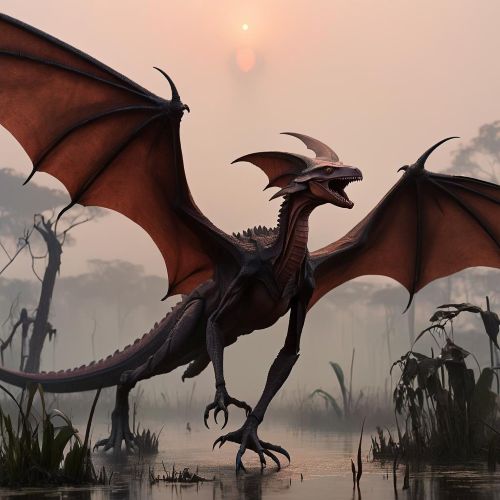Bemba Mythology
Bemba mythology, the spiritual heart of northern Zambia, reveals a worldview where ancestry, nature, and divinity exist in constant harmony. The Bemba people, one of Zambia’s largest ethnic groups, trace their origins to the ancient Luba kingdom of the Congo Basin — and with them came stories of creation, moral law, and sacred kinship that shaped their civilization. Over centuries, the Bemba adapted these myths to their environment of rivers, forests, and high plateaus, creating a vibrant cosmology where every living thing is infused with divine essence.
At the center of Bemba cosmology stands Leza, the supreme creator god and source of all life. Leza is both transcendent and immanent — the god of the sky and rain, but also the quiet breath within every creature. His name is spoken with reverence, as he embodies justice, compassion, and moral order. The Bemba believe that Leza created the world and established harmony between the human and spiritual realms. When storms break across the sky, they are seen as Leza’s voice — a reminder of his power and the need for humility before the divine.
Leza’s will is carried out by the mizimu, ancestral spirits who maintain the bridge between the living and the spiritual worlds. The mizimu watch over families, bless the fertile land, and ensure moral conduct among their descendants. They are invoked in times of illness, drought, or major decision-making through offerings of food, beer, and song. The Bemba understand that to forget one’s ancestors is to lose divine protection — and so memory itself becomes an act of worship.
In Bemba creation mythology, the first humans are believed to have emerged from Kasanga, the sacred place of origin. Guided by ancestral spirits, the people were taught how to hunt, farm, and live in balance with nature. These early myths emphasize interdependence — between people and animals, rain and earth, life and death. The Bemba see nature not as a resource, but as a relative in the sacred family of creation.
The Bemba also possess a rich oral tradition of heroic and moral tales that embody their spiritual values. One of the most significant is the myth of Chitimukulu, the divine kingship line descended from the first ancestors. The Chitimukulu (Paramount Chief) is not merely a political leader but a spiritual figure who embodies ancestral authority and harmony with Leza’s law. His rule ensures that the community remains in right relationship with both the land and the spirits. Ceremonies surrounding succession and renewal reaffirm this sacred balance, where leadership is seen as both duty and divine inheritance.
Rituals in Bemba spirituality often involve dance, drumming, and song — expressions of gratitude and connection. The sound of the drum (ngoma) is sacred, believed to carry messages to the ancestors. Rainmaking ceremonies, initiation rites, and harvest festivals all reinforce the moral and cosmic order that Leza established.
Even in the modern world, Bemba mythology continues to thrive in proverbs, prayers, and traditions that link past and present. It teaches that the divine is both above and within — that to live with integrity, generosity, and remembrance is to walk in harmony with Leza’s eternal order.


